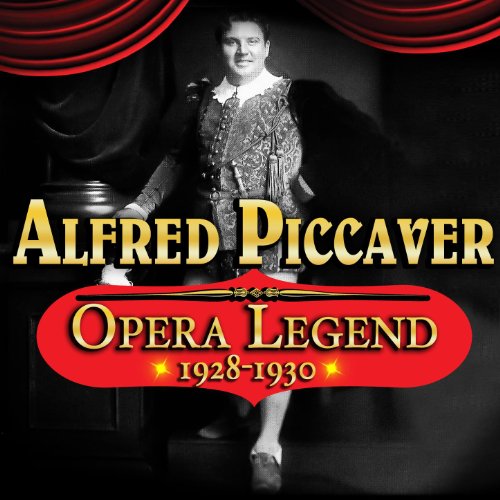












































(C) 2012 Unchained Melody
Artist bios
Born under the family name of Peckover, dramatic tenor Alfred Piccaver was reared in the United States from age seven and later became one of the stars of the Vienna Opera, enjoying the affections of the public there as did few other non-Austrian artists. He spent 27 years with the Vienna company, introducing two Puccini roles to that theater: Dick Johnson in La fanciulla del west and Luigi in Il tabarro. When he resigned from Vienna in 1937, he returned to England to spend the WWII years there.
Piccaver's parents resettled in Albany, NY, where young Alfred sang in a church choir and performed parlor songs to his own accompaniment. Studying electronics, Piccaver joined the Edison Company as an engineer, but found that career there cut short by an industrial injury. In the aftermath of that incident, Piccaver studied music and was brought to the attention of Metropolitan Opera director, Hans Conried. He was recommended for a scholarship to the Metropolitan Opera School and trained there until 1907.
After vacationing in England that year, he traveled to Austria to join some friends from America who were studying music there. Singing for them one day, he was urged to audition for impresario Angelo Neumann. The audition was duly arranged and Piccaver was offered a contract for Prague's Neues Deutsches Theater. He made his debut there on September 25, 1907, as Romeo in Gounod's Romeo and Juliet. Piccaver spent the next two years singing leading roles in Prague before moving to Italy for further study. When Piccaver completed his additional vocal training in 1910, he was engaged by the Vienna Opera, making his first appearance there as Fenton in Nicolai's Die lustigen Weiber von Windsor. He quickly became a favorite with Viennese audiences and pursued a wide variety of roles, both lyric and dramatic, embracing a large gallery of Verdi portraits and others in the German and French repertories.
With the outbreak of hostilities in 1914, Piccaver twice attempted to escape from Austria and was stopped in both instances. Finally, he was advised that he would be permitted to continue unhindered in his capacity as a leading artist at the Vienna Opera so long as he made no further attempts to flee. Thus, he remained at the theater for the duration.
In the years after WWI, his fame grew and he attained a degree of celebrity reserved for Vienna's most revered artists. His likeness in the role of Florestan appeared on a plaque placed on the Theater-an-der-Wien in 1927, an honor accorded only two other singers.
Chicago was the site of his American debut on New Year's Eve, 1923. His Duke in Rigoletto was well-received as was his Turiddu, and he was engaged for a second season when he added Cavaradossi (to the Tosca of Claudia Muzio), but his success was not of the overwhelming sort given him in Vienna. In 1924, he sang at Covent Garden, again with a similar result, although both his Duke and his Cavaradossi were well-reviewed, the latter role showing Piccaver's "tenore robusto voice of power and quality." This was Piccaver's first and last season at Covent Garden.
In 1937, Piccaver resigned from the Vienna Opera, moving first to Switzerland, then to England. Among his other signature roles were Andrea Chénier, Canio, Don José, Lensky, Lohengrin, and Radames. Piccaver's large, yet supple tenor remained a viable instrument into the singer's fifties.
Customer reviews
How are ratings calculated?

